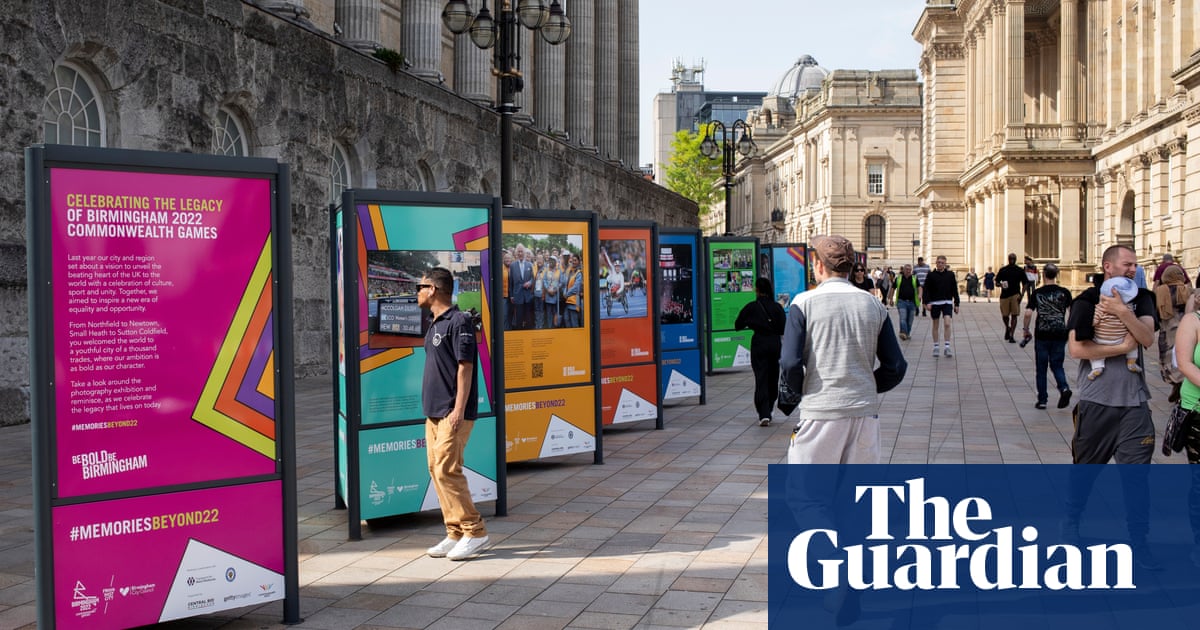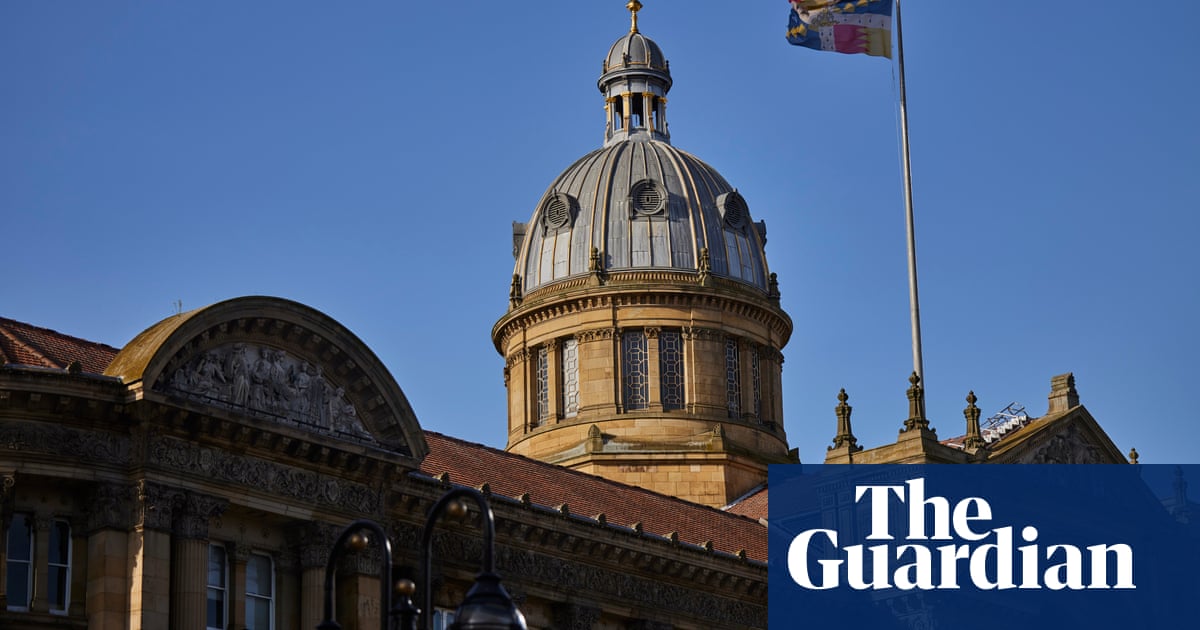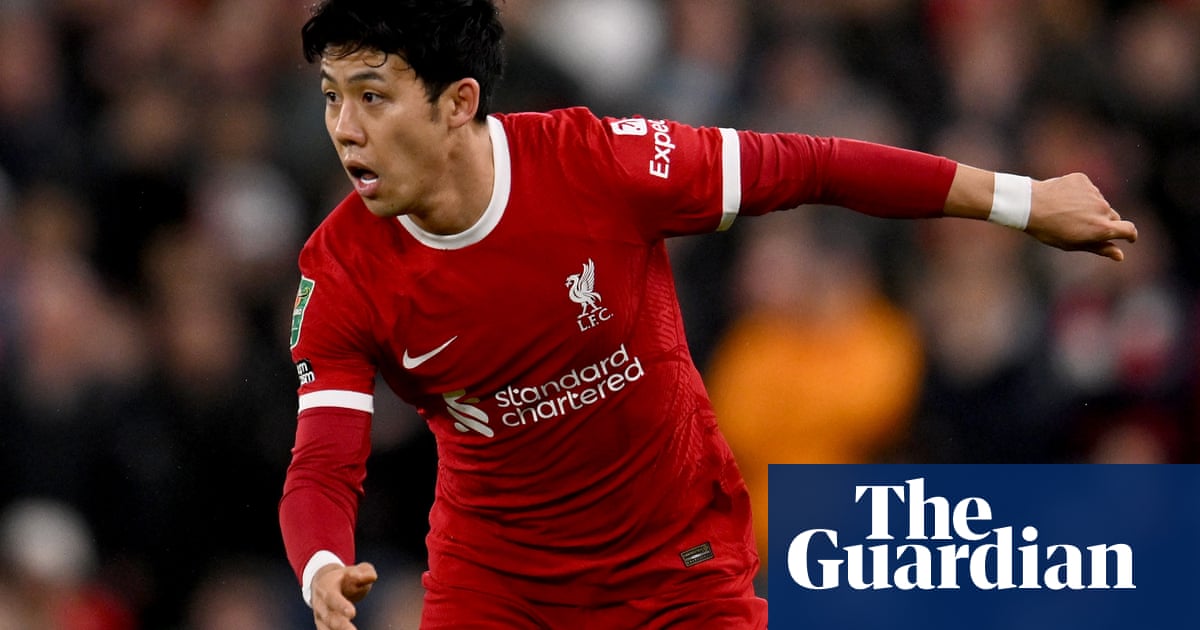
Just over a year ago, the streets of Birmingham were buzzing with crowds who had descended for the Commonwealth Games, hailed as the start of a “golden decade” for the city. Millions of pounds were spent on the event. Now, after Tuesday’s announcement that the city council is in effect bankrupt, questions are being asked about whether it should have gone ahead.
“The Games brought a lot of exposure to Birmingham, but now we have that exposure and it’s bankrupt with building sites everywhere. It’s a bit depressing, but it is what it is,” said Glenn Kennedy, 35, who was walking past Council House in Victoria Square.
A number of boards in the area around the building, much of which is closed off for construction work, proclaim the benefits of the Commonwealth Games legacy under the tagline “Be Bold Birmingham”.
“It does look a bit sad having all the Commonwealth Games stuff sat next to a building site and a bankrupt council building,” said Kennedy, who lives in Digbeth and works for a pub company in the city.
Many people in Birmingham still looked back fondly on the event and thought it had given the city a much-needed boost.
“It was a great atmosphere, especially coming out of Covid. It was some excitement, which I think everyone needed,” said Anita Kaur, 30.
Karim Suleiman, 49, who works at a Premier Inn in the city, said: “I remember the atmosphere of the Commonwealth Games. It brought a lot of hope and it felt like there was lots of changes happening in the city. Maybe they shouldn’t have spent the money on it. Who knows?”
Suleiman was concerned about the impact on council services, particularly housing. He lives with his three daughters in a small two-bedroom council flat and has been waiting for a bigger property for five years.
“I don’t know how this is going to affect us. We’ve got a lot of worries,” he said. “But mainly we’re very disappointed and very sad. It is very sad for a big city like Birmingham to be bankrupted.”
The total cost of the Games was estimated at about £778m, with the city council and local partners contributing around £184m and central government contributing £594m. Of this, £70m was not spent and was reinvested in legacy activities.
Months before the Games, the council reported a £25m hole in its funding for the event and said the shortfall would be made up from a contingency fund.
A freedom of information request revealed in 2020 that the council planned to spend an extra £34m on other costs related to the event, such as activities to encourage community engagement and support for increased visitor numbers.
Max Caller, a former adviser to Birmingham city council, told BBC Radio 4’s Today programme on Wednesday that the event had distracted the council from tackling its urgent financial issues.
“There is a limit to the amount of political and managerial capacity, and if you’re spending time doing Commonwealth Games, you cannot cope with the serious problems that you already face,” he said. “The advice that I gave, and that others gave, to officers and members at the time was that this was likely to be a challenge too far. If it were me, I wouldn’t have done it.”
Many local people said they were unsure exactly who was to blame for the financial crisis. The city council has attributed it to a £760m equal pay claim bill, £100m spent fixing problems with a new IT system, and £1bn in central government cuts over the past decade. Others including the West Midlands mayor, Andy Street, have criticised the council for failing to get to grips with its pay claim bill, which has been escalating for nearly a decade.
Kennedy said: “Obviously there’s been mismanagement, or they haven’t been paying close enough attention to where the money is going, but I think it’s probably a mixture of things.”
A 27-year-old project manager who lives the city and asked not to be named said: “I think you can’t put the blame in one place. It’s a mosaic, it’s a whole picture. It would be very easy to pit this as a Labour v Conservative issue, but it’s not that simple. There are councils struggling across the country.”
Some felt more strongly that the council had let people down by allowing the situation to deteriorate.
Chris Sandalls-Mewett, 65, from Sutton Coldfield, a semi-autonomous suburb in the north of the city, said: “Government cuts are across the country. That’s not just pertinent to Birmingham, and has been happening for the past 10 years. So it can’t just be about that.”
He said he wanted more clarity from the council on exactly how much money had been spent on the Commonwealth Games and what profit it had generated.
“I don’t think it should have happened. It was a pointless exercise. The money we spent on that could have been spent on alleviating the problem,” he said. “It’s not their money, it’s the people’s money, and they obviously haven’t managed it well.”












